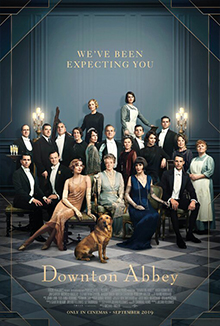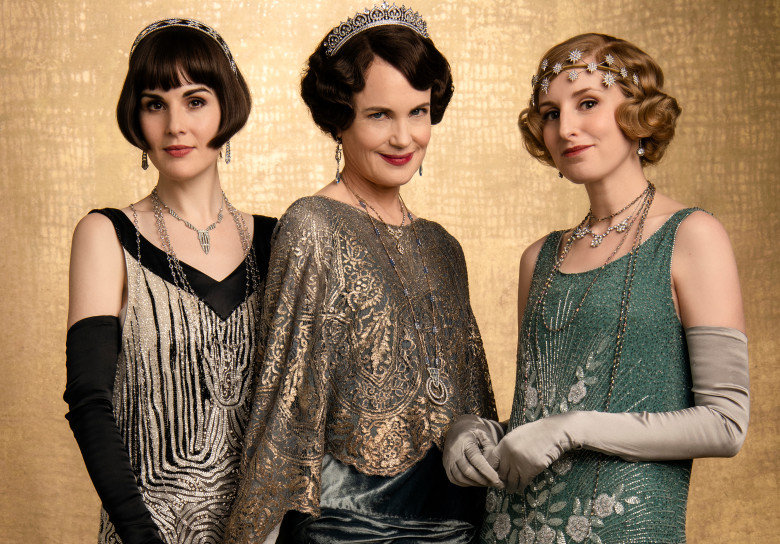Friday Film – Downton Abbey
A couple of years ago I went to a talk on ‘Diversity in the media’. A small group of Afro-Caribbean filmmakers in the audience spent most of the event berating the four member panel about Sunday evening television. “Why is the BBC still making stuff like Downton Abbey?” they asked repeatedly. “Why?”
It was a surprising question. I hadn’t seen a single episode of the series but even I knew that the show was a worldwide phenomenon. It was one of the few television events of recent years that people talked about the next day at work. I personally knew people who would drop everything on a Sunday evening to watch it. Family, friends, colleagues – all loved Downton. The most fanatical fans of this, almost entirely, white show were those of Afro-Caribbean and South Asian origin.
Eventually, one of the panel responded to the question at the discussion. He said firstly, Downton Abbey is an ITV production not BBC. Secondly, it’s one of the most popular and successful British TV programmes ever and has been sold around the world. And thirdly that, well, people really love it.
He then asked the group what they thought British people would want to see instead, on a Sunday evening.
There was a long silence before one of the group suggested that a series about gangs in south London might work.
It might but there’s room for everything.
Downton Abbey, the movie is now on release around the world. In the US it’s already poised to break Box office records for a period drama.
I saw it at a packed cinema in London with the most ethnically diverse audience I’ve seen in a long while for anything outside a superhero film.
There is a reason why film and TV people “keep making stuff like this “– millions of people absolutely love it – including now, me.
Downton Abbey the movie offers:
- Sumptuous, beautiful film-making. The movie is a visual treat.
- An intelligent, well honed script that clearly loves its subject matter. The dialogue sparkles with the same lustre as the family silver.
- Gorgeous costumes and locations. The house assumes its own character in the story which revolves around the visit of the king and queen to Downton. We see the house in its full glory, then rudely dismissed as being insignificant in the grand scheme of stately homes and then rising again as an abiding monument to an England of times gone by. The costumes for the “upstairs“ lot are lavish and eye-poppingly beautiful A without ever overshadowing their wearers.
- Superb acting. Dame Maggie Smith gets the best lines and hats as well as the scene stealing ripostes but every performance, from the royals to the footmen is a display of well crafted character acting. (Don’t be surprised to see Dame Maggie’s Dowager being pushed as an awards contender in the supporting category – especially at the Baftas. It would be hugely popular win, if it went that far)
- Relateable human issues set in a once real world, now largely a fantasy.
- A refined escape from the hard, harsh and coarse realities of
- These are all the obvious things. But Downton is more than just picture perfect, Christmas card version of a bygone era which in reality had its own hardships and harshness.
- It’s a human drama with believable characters the audience can invest in. Despite not having seen any of the TV series, I was still immediately swept up into the stories of the lords and ladies upstairs and the staff downstairs. Each member of the household is fully realised in the excellent writing of Julian Fellows and the fine acting of the largely British cast.
- What is particularly striking is how well written and strong the female characters are and how absolutely central they are to the story without being the flawless, humorous, loveless and ultimately forgettable women we get in most contemporary films. Without compromising an ounce of their femininity, beauty and love of men and fashion, each of the women dominate their scenes without a neon sign pointing at their heads telling us how terribly strong they are.
- Similarly, issues such as homosexuality are seamlessly woven into the story thereby drawing far more sympathy and understanding from the audience than the off putting, heavy-handed hectoring we get in so many modern stories ever does.
- Finally, Downton Abbey is a delight to watch. It’s just joyful film viewing and that really is becoming a lost art.


